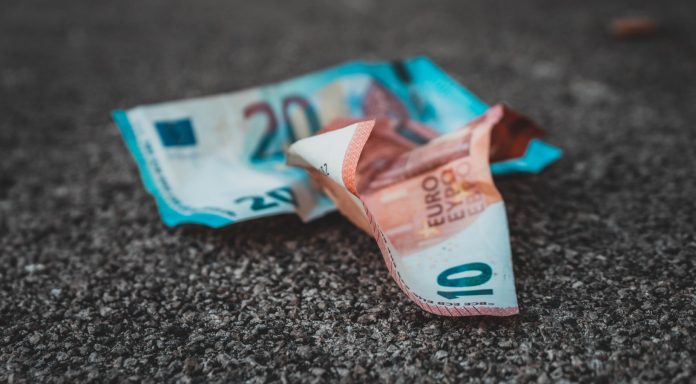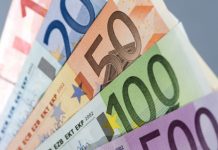With both Brexit chaos and a cautious European Central Bank, the pound managed to trade flat versus the euro across the previous week. The pound euro exchange rate finished the week at €1.1123, which is approximately the same level that that it started the week at. The pound is slipping versus the euro in early trade on Monday.
| What do these figures mean? |
|---|
| When measuring the value of a pair of currencies, one set equals 1 unit and the other shows the current equivalent. As the market moves, the amount will vary from minute to minute.h If the euro amount increases in this pairing, it’s positive for the pound. Or, if you were looking at it the other way around:1 EUR = 0.87271 GBP In this example, €1 is equivalent to approximately £0.87. This measures the euro’s worth versus the British pound. If the sterling number gets larger, it’s good news for the euro. |
Last week was a total car crash for UK Prime Minister Theresa May. She pulled the vote in Parliament on her Brexit plan under the knowledge that it would never make it through. She survived a vote of no confidence with less than two thirds of her party supporting her. Theresa May then returned empty handed from the EU leaders’ summit, where she had hoped to pick up further reassurances over Brexit and more particularly the Irish backstop.
Whilst the pound rallied on Theresa May survive the vote of no confidence, the other events have all had a negative impact on the pound as investors question Theresa May’s ability to push her version of Brexit through Parliament. The alternative could be a hard Brexit, which leading economists have frequently declared would be disastrous for the UK economy and therefore the pound.
| Why is a “soft” Brexit better for sterling than a “hard” Brexit? |
|---|
| A soft Brexit implies anything less than UK’s complete withdrawal from the EU. For example, it could mean the UK retains some form of membership to the European Union single market in exchange for some free movement of people, i.e. immigration. This is considered more positive than a “hard” Brexit, which is a full severance from the EU. The reason “soft” is considered more pound-friendly is because the economic impact would be lower. If there is less negative impact on the economy, foreign investors will continue to invest in the UK. As investment requires local currency, this increased demand for the pound then boosts its value. |
On a day light on economic releases, Brexit headlines will continue to drive the pound at the start of the new week. Theresa May is under increasing pressure to end the deadlock on Brexit. Signs of a no — deal Brexit or general election could hit demand for the pound. Meanwhile the support for a second referendum is also growing and this would likely be beneficial for the pound. However, Theresa May has made it clear she is not supporting the call for a second referendum.
Eurozone Inflation To Weaken the Euro?
The ECB announced the end of its asset purchase programme in the previous week, as analysts had expected. However, ECB President Draghi sounded more cautious over the health of the Eurozone economy, which is showing signs of losing growth momentum.
Investors will be paying particular attention to eurozone inflation data today. Analysts are expecting Inflation, as measured by the consumer price index (CPI), to tick lower to 2% in November, from 2.2% the previous month. Weak inflation could drag the euro lower, as the ECB will be even less inclined to raise interest rates if the rate of inflation is declining.
| Why do raised interest rates boost a currency’s value? |
|---|
| Interest rates are key to understanding exchange rate movements. Those who have large sums of money to invest want the highest return on their investments. Higher interest rate environments tend to offer higher yields. So, if the interest rate or at least the interest rate expectation of a country is relatively higher compared to another, then it attracts more foreign capital investment. Large corporations and investors need local currency to invest. More local currency used then boosts the demand of that currency, pushing the value higher. |
This publication is provided for general information purposes only and is not intended to cover every aspect of the topics with which it deals. It is not intended to amount to advice on which you should rely. You must obtain professional or specialist advice before taking, or refraining from, any action on the basis of the content in this publication. The information in this publication does not constitute legal, tax or other professional advice from TransferWise Inc., Currency Live or its affiliates. Prior results do not guarantee a similar outcome. We make no representations, warranties or guarantees, whether express or implied, that the content in the publication is accurate, complete or up to date. Consult our risk warning page for more details.
This article was initially published on TransferWise.com from the same author. The content at Currency Live is the sole opinion of the authors and in no way reflects the views of TransferWise Inc.





